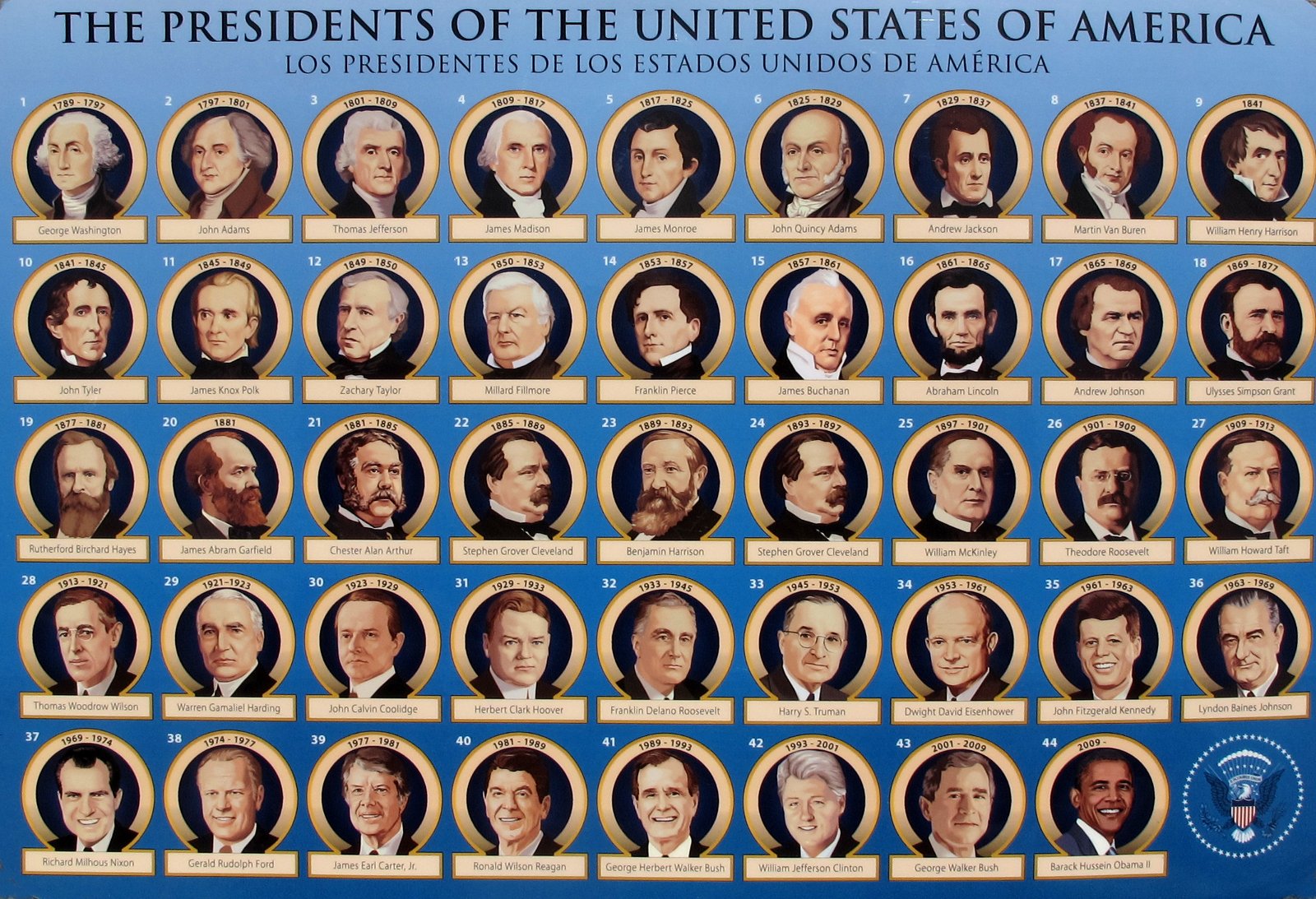The 1960s were a transformative decade in American history, marked by significant political, social, and cultural changes. During this time, several presidents played crucial roles in shaping the nation's policies and direction. In this article, we will explore every president that served in the 1960s in order, highlighting their contributions and the key events that defined their administrations.
The decade began with the presidency of Dwight D. Eisenhower, who had served since the 1950s, followed by John F. Kennedy's short but impactful term, and culminated in Lyndon B. Johnson's extensive tenure. Each of these leaders faced unique challenges and opportunities that would leave a lasting impact on the United States. Understanding their presidencies is essential for grasping the complexities of this pivotal era.
As we delve into the details, we will provide a comprehensive overview of each president, including their key policies, historical context, and notable events. This article aims to serve as a reliable resource for anyone seeking to understand the leadership that guided America through a turbulent decade.
Table of Contents
Dwight D. Eisenhower (1953-1961)
Dwight D. Eisenhower was the 34th President of the United States, serving from 1953 until 1961. His presidency laid the groundwork for many of the political dynamics that would unfold in the 1960s. Eisenhower was a World War II hero and a five-star general who brought a sense of stability to the nation during the early years of the Cold War.
Key Policies and Events during Eisenhower's Presidency:
- Cold War Strategy: Eisenhower adopted a policy of containment and developed the "Eisenhower Doctrine," which aimed to prevent the spread of communism in the Middle East.
- Interstate Highway System: He championed the creation of the Interstate Highway System, which revolutionized transportation in America.
- Civil Rights Movement: Eisenhower's administration saw the beginnings of the Civil Rights Movement, including the desegregation of schools following the Brown v. Board of Education decision in 1954.
Biodata of Dwight D. Eisenhower
| Name | Dwight David Eisenhower |
|---|---|
| Born | October 14, 1890 |
| Died | March 28, 1969 |
| Political Party | Republican |
| Predecessor | Harry S. Truman |
| Successor | John F. Kennedy |
John F. Kennedy (1961-1963)
John F. Kennedy, the 35th President of the United States, served from January 20, 1961, until his assassination on November 22, 1963. His presidency is often remembered for its youthful energy, inspirational rhetoric, and significant events that shaped the nation.
Key Policies and Events during Kennedy's Presidency:
- Cuban Missile Crisis: In October 1962, Kennedy faced one of the most dangerous moments of the Cold War when the Soviet Union placed nuclear missiles in Cuba, leading to a tense standoff.
- New Frontier: Kennedy's domestic policy agenda, known as the New Frontier, aimed to address issues such as civil rights, education, and poverty.
- Space Race: Kennedy famously declared the goal of landing a man on the moon by the end of the 1960s, leading to significant advancements in space exploration.
Biodata of John F. Kennedy
| Name | John Fitzgerald Kennedy |
|---|---|
| Born | May 29, 1917 |
| Died | November 22, 1963 |
| Political Party | Democratic |
| Predecessor | Dwight D. Eisenhower |
| Successor | Lyndon B. Johnson |
Lyndon B. Johnson (1963-1969)
Lyndon B. Johnson, the 36th President of the United States, assumed office after Kennedy's assassination in 1963 and served until 1969. Johnson's presidency is noted for its ambitious domestic agenda and significant social reforms.
Key Policies and Events during Johnson's Presidency:
- Great Society: Johnson introduced the Great Society programs, aiming to eliminate poverty and racial injustice through initiatives like Medicare, Medicaid, and the Civil Rights Act of 1964.
- Vietnam War: His administration escalated U.S. involvement in the Vietnam War, leading to widespread protests and social unrest.
- Civil Rights Movement: Johnson was a strong advocate for civil rights, working to pass legislation that would protect the rights of African Americans.
Biodata of Lyndon B. Johnson
| Name | Lyndon Baines Johnson |
|---|---|
| Born | August 27, 1908 |
| Died | January 22, 1973 |
| Political Party | Democratic |
| Predecessor | John F. Kennedy |
| Successor | Richard Nixon |
Conclusion
Throughout the 1960s, the United States experienced significant changes under the leadership of Presidents Eisenhower, Kennedy, and Johnson. Each president faced unique challenges and left a distinct mark on both domestic and foreign policy. Understanding their contributions helps us appreciate the complexities of the era and the profound impact their decisions had on the nation.
We encourage readers to share their thoughts and insights on these pivotal presidencies. What do you think was the most significant event of the 1960s? Leave your comments below, and don't forget to explore more articles on American history for a deeper understanding of our nation's past.
Thank you for reading, and we hope to see you back here for more engaging content!




